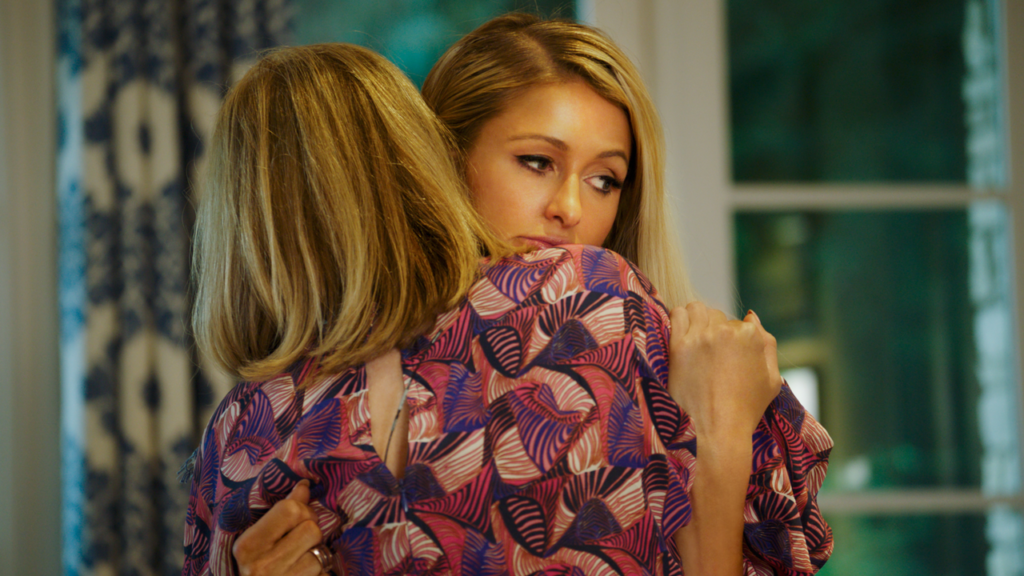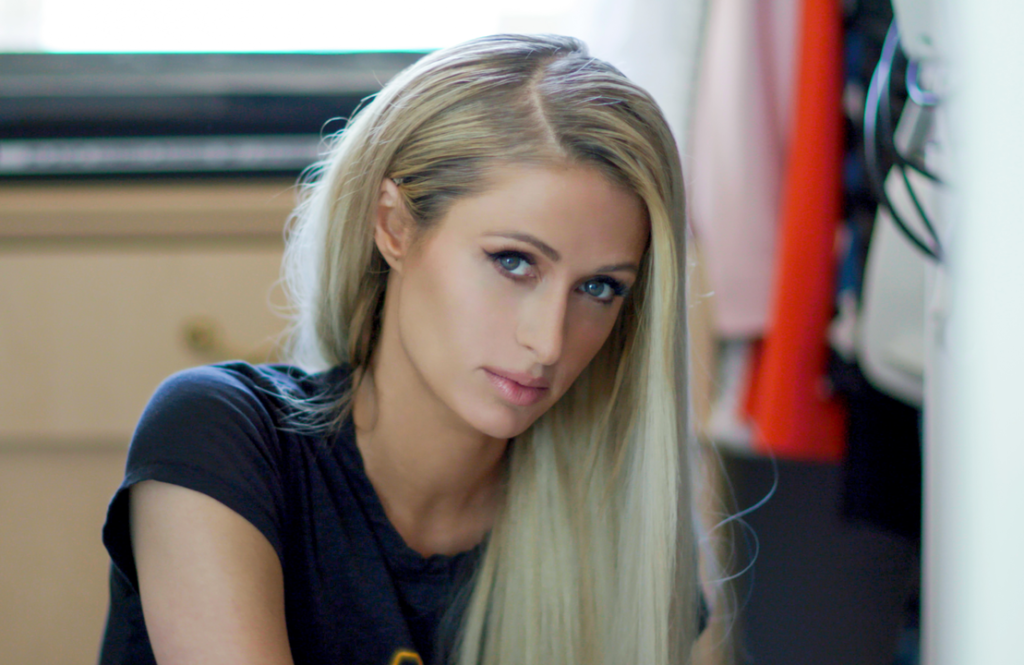It gave me a deeper insight into the real Paris, whom I found to be far more intelligent and likable than the caricature she plays. It captured my attention even more than YouTuber Paris and her comical (apparently satirical) videos on her YouTube channel. However, it also turned out to be the furthest thing from comical or glamorous and veers towards disturbing, which is something I certainly didn’t expect!
It begins with Ms. Hilton pulling a face-mask off, obviously symbolising her pulling down the façade she puts up for the camera as she prepares to present a more raw side to herself that her conservative Catholic family has tried very hard to suppress in the past—and still tries to suppress throughout the course of the documentary.
Then, there is the constant, literal switching between voices as she attempts to navigate through who she really is, trying to discover her own voice. Two decades of doing a Valley Girl accent will do that to you; and according to a psychologist who analysed her documentary in a reaction video which I watched later on YouTube, Paris putting on the accent is probably just her trying to overcome or cover up childhood trauma by not wanting to actually mature while being too afraid to confront her stone-cold family. And knowing that this could be an actual possibility stemming from psychological trauma shocks me even more now.
While I applaud Paris for being apologetic in this documentary for most of the toxic choices she made in the past while trying to maintain her façade which now inspire countless other social media influencers, I would have preferred it if her family had also apologised for sending her to abusive boot camps to change her ‘party girl ways’ and to thus maintain their reputation. I don’t know how many times I felt like yelling ‘that’s your daughter!’ at the screen when her mother took no responsibility at all for subjecting a young Paris to horrific mental trauma or never acknowledged the psychological and physical torture that Paris and many other young girls who were raised on an unhealthy dosage of countless etiquette lessons faced at the Provo Canyon School, Utah.

And through it all, it is clear that Paris was a victim persevering as the media and her own family vilified her in public for even the sex tape that was forced on to her by a toxic boyfriend (she rightfully calls it ‘electronic rape’). The animated sequences of her abusive past drive this point home further. It is cringe-inducing when her own mother and sister continue to vilify her, and the documentary is rife with more such moments of betrayal. Watching her literally beg to her selfish lover Aleks Novakovik to not leave her side at a crowded venue where she is about to DJ is genuinely heartbreaking. However, there are moments when I was proud of her for being self-aware enough to sever ties from Aleks by cutting off his music festival band (even more symbolism) and sending him on his way.
Other scenes that are heartbreaking to watch include her driving around in her car while contemplating whether she’ll ever be able to fully break free from the caricature she’s created and then undergoing a silent mental breakdown and bouts of anxiety and insomnia. To me, these scenes paralleled similar ones from another celebrity documentary I’d watched a while back called “Conan O’Brien Can’t Stop.” Ironically, the protagonists of both these documentaries (Hilton and O’Brien respectively) are known for the personas they’ve put on for entertainment purposes for almost two decades. Both fell victim to the toxic people whom they surrounded themselves with (be it toxic network executives for Conan or toxic relatives and lovers/friends for Paris).
And honestly, sitting through both these documentaries has taught me to be more empathetic to celebrities such as Paris and Conan who continue to be nice and loving towards their fanbase and to persevere and build their brand despite their fatigue, trauma, and personal and professional battles. It’s taught me that powering through a difficult situation (whether you’re born into it or whether it’s thrust upon you forcefully) is very brave, strong, and empowering in itself. And to me—that’s hot!
You can watch the YouTube Original documentary here:


